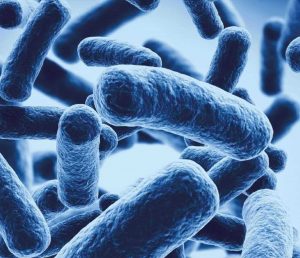Trying to Lose Weight | If one of your New Year’s resolutions is to lose weight, you are not alone… the United States has the highest rate of obesity in the world.
In 2010, more than 35 percent of American adults were obese as well as 17 percent of American kids, and it’s estimated that 50 percent of adults will be obese by 2030.
Obesity has been attributed to many things, including our over-consumption of processed grains, sweetened foods and sodas. A sedentary lifestyles don’t help, either.
Scientists are exploring the possibility that the bacteria hanging out in your gut may also contribute to your expanding waistline, and perhaps to your inability to lose weight.
The health of the intestines, in particular the composition of the trillions of bacteria that live in your gut, may be key players in everything from dysfunction of your immune system to insulin resistance, diabetes, obesity, depression, skin disorders and autoimmune disease. In fact, many scientists consider that the microbes in the gut constitute their own organ system in the body known as the microbiome.
The human microbiome consists of all of the bacteria, viruses, fungi and other organisms that live communally in the gut. There are 10 times as many organisms in the body as there are human cells, and these organisms are subject to change, especially with changes in our diet.
So how might bacteria in the gut affect your weight?
Research suggests that organisms in our intestines have a significant impact on how fats in our food are metabolized, absorbed and stored. The first data to suggest a connection between the health of the gut and the risk of obesity was published in 2004, and since then more than 100 articles have been published trying to elucidate the mechanism behind this.
An imbalance of harmful bacteria in the gut can secrete substances known as endotoxins that can incite inflammation and contribute to changes in hormones that subsequently lead to weight gain. In a recent study in China, scientists identified an obesity-linked bacteria known as Enterobacter *from a morbidly obese adult male; when that bacterium was eliminated from his gut, he lost nearly 30 percent of his body weight.

The researchers then fed this same Enterobacter to a group of mice; they developed obesity and insulin resistance from this exposure.
What leads to an increase in harmful bacteria such as Enterobacter?
The composition of organisms in the intestines is affected by multiple things including foods we eat, the use of antibiotics, chronic ingestion of acid-reducing medications and stress. In fact, bacteria in the gut can change within 24 hours of a change in our diets.
And how do you keep your gut healthy and happy?
Start by avoiding processed grains and sugars, which can promote the growth of harmful bacteria, and switch to whole, unprocessed grains, fresh, organic fruits and vegetables, and fermented foods.
Fermented foods like yogurt and sauerkraut contain healthy bacteria known as probiotics, which help to replenish healthy gut bacteria, and most of us no longer eat these foods with any regularity.
Foods like garlic, leeks, and onions contain substances known as prebiotics, which also help to feed and foster the growth of healthy bacteria. Sometimes a probiotic supplement is also needed to help restore gut health, as is the case after using antibiotics, and some people may even need more specific treatment to reduce levels of harmful bacteria in the intestines.
As always, to keep a healthy gut biome and a healthy weight, try to reduce stress, get plenty of sleep, keep up regular exercise and have healthy portion sizes when you eat.
………………………………………………………………………………………………………………………
* Enterobacter is a genus of common Gram-negative, facultatively anaerobic, rod-shaped, non-spore-forming bacteria of the family Enterobacteriaceae. It is the type genus of the order Enterobacterales.
Bliss Lifestyle Therapies can design the right exercise and nutrition program for you, and help you with your intestine health and recommend safe and reliable probiotic supplements.

